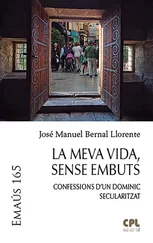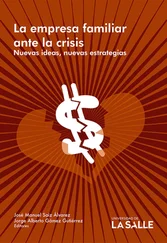Everything revolved around that, all misunderstandings: around who other people thought, erroneously, that they were. And it was necessary, from time to time, to correct them, put them in their place. To ask, “But who do you think, who have you believed that you are?” And the other party never reacting appropriately, always proceeding from the false position of the person she believed she was and not from the real and insignificant one of a person who was in fact a nullity.
A nobody!
And once the subject had been addressed, the incident acted out in a pantomime that was invisible to her interlocutor but transmitted to her through changes in the voice, pauses, the points of inflection of the altercation, once the whole matter had been explained and delineated, then and only then did the commentary per se begin. In the first place, opening with: who in reality this person was. An analysis that she could base on many factors, for even prior to this incident she had noticed: the horrible apartment the other woman shared with her mother, the hideous clothing she bought, the hairdresser she should have gone to but never did, for which reason she tied her hair back with a two-cent bit of elastic. All of this gone over in her presence yesterday in the office, details she now wanted to comment upon over the telephone so her interlocutor would understand, would finally manage to grasp the message, just as her enemy had finally grasped it the day before.
The train stopped. The cylinders in the doors released air. The woman in the red shoes stood up, the telephone still at her ear, her lips shaped into a pout from which words continued to fall into the receiver as from a cornucopia. She stepped uncertainly down to the platform and then walked along it with her head very still, listening now to the words of Ana or Inés, commentaries on her previous commentary or on a similar situation with the same person or on a similar incident with an equally unbearable person, perhaps she, too, stepping out of a train or, having waited throughout the whole conversation with one hand free, now parking her small car at the other end of the city.
It’s no longer necessary to wait to see each other once a week in order to comment upon the offenses that are inflicted upon us every day. They can now be commented upon on the go, only minutes after the coffee grew definitively cold and you had to get out of your seat — all because of that idiot! — and go warm it up in the microwave, taking advantage of that time to begin elaborating the principal points of your commentary as you watch the little cup spinning: but who does she take herself for? Who does she think she is?
4
I left the invitations in accordance with the procedure described by the Writer: To myself I seem, when I have dealings with other people, to be, despite everything, the worst of them all, and all seem to take me for a fool, so much so that I tell myself: “Well then, I will in truth play the clown; your opinion doesn’t matter because all of you, from first to last, are more vile than I am!”Words that support this gloss: myself dressed as a lackey, with the diminished volume of such an individual, the sunken chest, the elbows, small hands folded in front of me, obsequious. Moving forward with little skips of my dancing shoes, a smile of placid stultification. All that in a quick message to their retinas and nervous systems. Entirely false and contrary to my true self (and feelings? And feelings. You know). Maneuvering among the currents of distrust I saw emerging from half-open doors, the spying maid or butler watching me advance from the front gate to the house. Applying my whole weight to it, pressing the trap down against the floor, without neglecting it for a second, fearing that it might suddenly spring free, give a leap and catch my throat in its toothed jaws. In Spanish, but as if it were a foreign language, masticated, slow and torturous. Romanov? No, not Romanov. (Like a second-rate artist who’s always being confused with his competitors: Yes, you are Fili! No, I am not Fili, though I know and admire his work. What more do you want? Uri Geller, at your service. Though of course not Uri Geller either.)
Leaving those houses with the air of a beaten dog, a lackey (of Russian imperialism now), muttering poxes against them, who did they think they were? Doddering representatives of the doddering houses of Europe, little old men who went out to take the sun like those decrepit ancients in the Writer whose withered faces peer out over a courtyard, studying it with utmost care, its uneven flagstones, fearing it as they would a stormy sea where they might easily and, to my enormous rejoicing, break a leg, hearing their weak bones crunch, watching them fall to the ground from the height of their absurd belief that they might some day be called back: to rule! A thing that never in all of history! Ridding myself of this thought at top speed, unwilling or pained at having to concede that Batyk was correct. Who in his right mind, Batyk had laughed at us, at your mother and at me: what country would agree to acclaim as king someone invested with divine power? What country? In what possible way could you speak of sacred royalty, of the Davidic lineage of the kings of France or the lineage — what? — of the czars of Russia? How to retreat from the current state of triumphant and exemplary democracy to a state of abject (that’s what he said: abject) subjugation to a king, to the caprices of a king? To betray, to turn away from the hard-won equality of the people (or, if you like, of the Russian people) with such an elevation, and establish, outside the law, beyond the reach of the law, a king?
How absurd an ambition! False kings, oh yes, gentlemen, a King of Pop or a Queen of Love Songs with the same credentials, pure falsity, knowing it to be pure falsity. And I the accomplice and spokesman of this absurd claim. Just a young schoolteacher, in fact, one who would never forget his humble origins, an immigrant myself, who would never treat a foreigner as those heartless kings had, Leka of Albania, all of them as if hiding out there in Madrid, their black hearts drawn there by the resplendent example of the king of Spain.
The servants and grooms who burst out laughing when I announced myself. The sixth? How many czars of Russia does that make this week, Ramón? And they didn’t stop laughing as they rolled me down the stairs, delivering (this is true, Petya, absolutely true, it happened in Madrid) many blows to my back. These lackeys, unleashed and encouraged by their masters upstairs, dabbing at their lips with napkins of batiste linen and turning back to the Financial Times , not to Hidalgia , the (Spanish) magazine of nobility and weaponry, not to the Gotha . Coldly calculating the moment when a crisis in their countries would bring their people’s patience to an end, after which they would go back, acclaimed as the legitimate heirs to the throne! Carried aloft on a wave of popular fervor! To restore the monarchy. Though we were not seeking, I thought at the time, my back aching terribly, we weren’t trying to restore anyone. Ours was a better plan, more modern, less vulgar: a dynastic election.
I didn’t manage to explain it because I didn’t get past a single vestibule. I was not allowed to place our plan on the table, for which purpose I would have requested, with the greatest respect and consideration, that His Excellency move aside the plate bearing the Hohenzollern coat of arms (the china saved from the rockets of the T-34s in ’45, in Bucharest). And at other houses I only managed to leave invitations — without a seal! I realize now, without a coat of arms! — in the mailboxes.
A despot of that kind, deformed by centuries of rule and consanguineous marriage, centuries of despotic power, how to get him off your back, Batyk had asked me jeeringly, how, without elections?
Читать дальше












